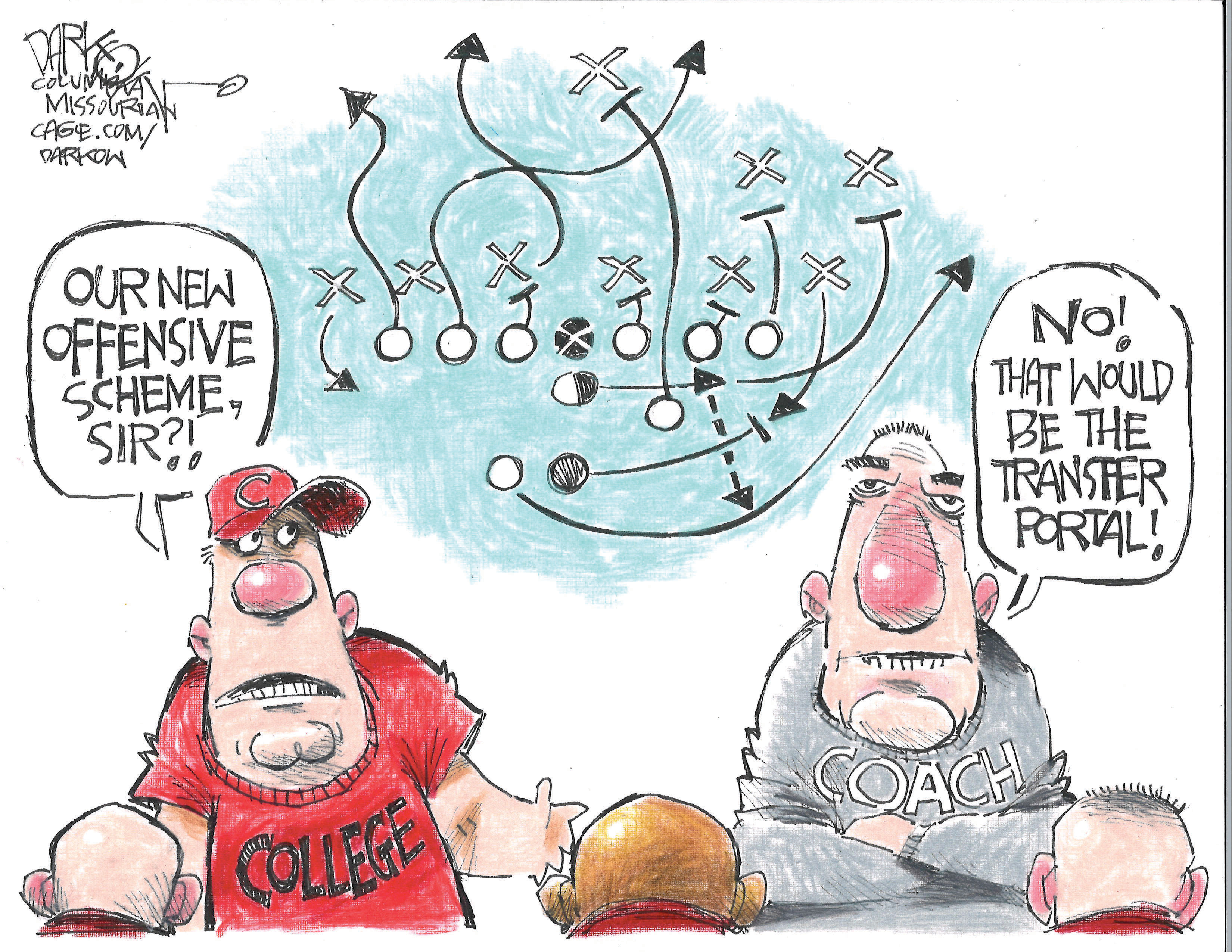Why religion will dominate the 21st century
Religious disaffiliation may be growing in America, but the rest of the world is a different story


One of the most common assumptions is that religiosity is linked to economic and technological underdevelopment. As a society gets more technologically and economically advanced, the thinking goes, religiosity naturally fades away and is replaced by a more secular worldview.
Exhibit A is usually Western Europe, which grew more secular as it grew richer (and much, much more violent) across the 19th and 20th centuries. Exhibit B is the world's most religious continent — Africa — which happens to be its poorest.
Under this view, the 21st century will be the century in which secularization spreads even further as the rest of the world catches up.
The Week
Escape your echo chamber. Get the facts behind the news, plus analysis from multiple perspectives.

Sign up for The Week's Free Newsletters
From our morning news briefing to a weekly Good News Newsletter, get the best of The Week delivered directly to your inbox.
From our morning news briefing to a weekly Good News Newsletter, get the best of The Week delivered directly to your inbox.
But when you look at the actual trends of religiosity across the world, what becomes apparent is actually the opposite: The 20th century was probably the high point of secularization, while the 21st century will likely be dominated by religion. The famous line by the French intellectual and politician André Malraux — "The 21st century will be religious or it will not be" — is on track to be vindicated.
First, let's dispense with the notion that there is some necessary causal link between economic and technological advancement and secularization. One need only look at South Korea, which was one of the poorest countries on the planet at the end of World War II, and is now one of the richest and most technologically advanced — indeed, on some metrics, more advanced than Western Europe or the U.S.
At the same time that South Korea experienced this astonishing growth, Christianity in the country grew from less than 1 percent of the population to about 30 percent today.
What about the rest of the world? Is it secularizing? To the contrary, religion is becoming one of the most important forces shaping the fate of most countries in the world.
A free daily email with the biggest news stories of the day – and the best features from TheWeek.com
Look at the former Communist bloc countries. They went from being officially atheist to experiencing a strong religious revival. It's impossible to mention Poland without mentioning the cultural importance of Catholicism there. Religion is also a common theme in any discussion of Russia, where the Orthodox Church has stepped in to provide a sense of Russian identity and become — for better or worse, given its alliance with the Putin regime — a key force shaping the country's culture.
Then there's China. While still officially atheist, it has never been wholly atheist in practice. In particular, Chinese folk religion and Buddhism never really went away, they just went underground (or, in some cases, not even underground). And one of the most noted phenomena about China is the astonishing growth of Christianity there, to the horror and dismay of the regime, which plays a game of both trying to coopt and suppress it.
By some estimates, pretty soon there will be more Christians in China than in the United States. What that will mean for the future of the country is anybody's guess, but it will certainly mean something.
Now look at Latin America. If you know one thing about religion and Latin America, it's that the entire continent has been historically dominated by the Catholic Church. If you know two things, it's that Catholicism is being strongly challenged by other forms of Christianity, particularly Evangelical and Pentecostal. That's a change in religion's favor: the kind of anticlerical secularism that featured so prominently in the continent mere decades ago isn't Catholicism's main antagonist anymore. In Latin America, the fight is between varieties of religion.
In the Middle East and the broader Arab world, the same phenomenon prevails: The most dominant cultural-religious trend of the 1950s was anti-colonial, socialist, secular pan-Arabism. That led mostly to autocracies presiding over corrupt governments, which resulted in a backlash that took the form of political Islam, which was the strongest vehicle for resistance to the jackboot of tyranny.
This religious revival is much broader than terrorism — most varieties of Islam that are growing are not extremist, even if they are robust and vociferous. We don't know what the Middle East will look in the future, but one thing is clear: It will certainly not be European-style secularism. Not long ago, a few hundred thousand Muslims made the yearly hajj pilgrimage to Mecca; today, the number is more than 2.5 million.
Wherever you look, religion is mutating, thriving, growing. Southeast Asia is as fiercely religious as ever. Same with India. Africa — this century's next superpower — is the most religious continent on the planet. In America, disaffiliation is changing the face of American religion, but at the same time, higher proportions of people today than in the 1950s declare believing in God, or having had a religious experience, or praying frequently.
And even in Western Europe, that bulwark of secularization, the main debate over national identity is inseparably linked to the question of the growth of Islam there (from both conversions and immigration). Indeed, Europe may be sowing the seeds of a Catholic revival.
Why does this matter?
It matters because theology has consequences. The post-Enlightenment secular worldview tends to treat religion as nothing more than a private hobby. It rejects out of hand the notion that people's spiritual beliefs matter in a broader context. When evolution tells us we're just genes trying to spread, when economists tell us all we do is maximize our self-interest, when psychologists tell us we just want to get laid — we become convinced that humans act on nothing but narrow material desires.
But that's just not true. As a matter of fact, human beings are spiritual beings first, with a natural orientation toward transcendent realities. More prosaically, to state the obvious, human beings make decisions partly based on how we understand our self-interest, yes, but also based on our worldviews, on our vision of what is true and good and beautiful.
Religion has been the most intense worldview-shaping phenomenon in history, and it will continue to be the most important worldview-shaping phenomenon of the 21st century.
Ignore this reality at your peril.
Editor's note: A previous version of this article mistakenly asserted that 50 percent of South Koreans are Christian.
Pascal-Emmanuel Gobry is a writer and fellow at the Ethics and Public Policy Center. His writing has appeared at Forbes, The Atlantic, First Things, Commentary Magazine, The Daily Beast, The Federalist, Quartz, and other places. He lives in Paris with his beloved wife and daughter.
-
 Political cartoons for January 2
Political cartoons for January 2Cartoons Friday's political cartoons include college football chaos, an AI baby new year, and Putin's 'peace' plan for Ukraine
-
 Prickly pear juice recipe
Prickly pear juice recipeThe Week Recommends Jewel-toned, natural juice is a thirst-quenching treat
-
 The truth about vitamin supplements
The truth about vitamin supplementsThe Explainer UK industry worth £559 million but scientific evidence of health benefits is ‘complicated’
-
 How Bulgaria’s government fell amid mass protests
How Bulgaria’s government fell amid mass protestsThe Explainer The country’s prime minister resigned as part of the fallout
-
 Femicide: Italy’s newest crime
Femicide: Italy’s newest crimeThe Explainer Landmark law to criminalise murder of a woman as an ‘act of hatred’ or ‘subjugation’ but critics say Italy is still deeply patriarchal
-
 Brazil’s Bolsonaro behind bars after appeals run out
Brazil’s Bolsonaro behind bars after appeals run outSpeed Read He will serve 27 years in prison
-
 Americans traveling abroad face renewed criticism in the Trump era
Americans traveling abroad face renewed criticism in the Trump eraThe Explainer Some of Trump’s behavior has Americans being questioned
-
 Nigeria confused by Trump invasion threat
Nigeria confused by Trump invasion threatSpeed Read Trump has claimed the country is persecuting Christians
-
 Sanae Takaichi: Japan’s Iron Lady set to be the country’s first woman prime minister
Sanae Takaichi: Japan’s Iron Lady set to be the country’s first woman prime ministerIn the Spotlight Takaichi is a member of Japan’s conservative, nationalist Liberal Democratic Party
-
 Russia is ‘helping China’ prepare for an invasion of Taiwan
Russia is ‘helping China’ prepare for an invasion of TaiwanIn the Spotlight Russia is reportedly allowing China access to military training
-
 Interpol arrests hundreds in Africa-wide sextortion crackdown
Interpol arrests hundreds in Africa-wide sextortion crackdownIN THE SPOTLIGHT A series of stings disrupts major cybercrime operations as law enforcement estimates millions in losses from schemes designed to prey on lonely users
